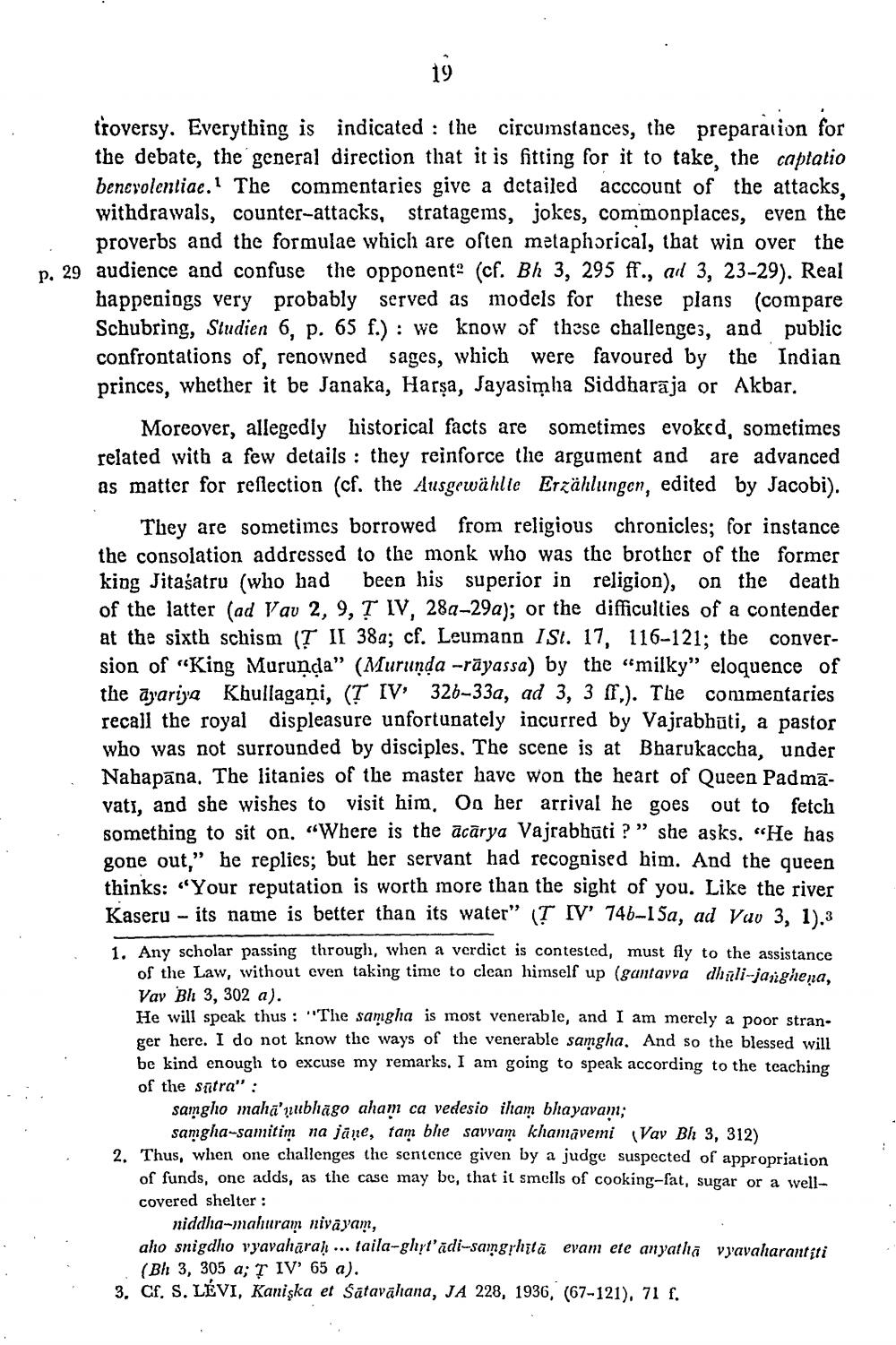________________
19
troversy. Everything is indicated: the circumstances, the preparation for the debate, the general direction that it is fitting for it to take, the captatio benevolentiae. The commentaries give a detailed acccount of the attacks, withdrawals, counter-attacks, stratagems, jokes, commonplaces, even the proverbs and the formulae which are often metaphorical, that win over the p. 29 audience and confuse the opponent (cf. Bh 3, 295 ff., ad 3, 23-29). Real happenings very probably served as models for these plans (compare Schubring, Studien 6, p. 65 f.): we know of these challenges, and public confrontations of, renowned sages, which were favoured by the Indian princes, whether it be Janaka, Harṣa, Jayasimha Siddharaja or Akbar.
Moreover, allegedly historical facts are sometimes evoked, sometimes related with a few details: they reinforce the argument and are advanced as matter for reflection (cf. the Ausgewählte Erzählungen, edited by Jacobi).
conver
They are sometimes borrowed from religious chronicles; for instance the consolation addressed to the monk who was the brother of the former king Jitaśatru (who had been his superior in religion), on the death of the latter (ad Vav 2, 9, T IV, 28a-29a); or the difficulties of a contender at the sixth schism (T II 38a; cf. Leumann ISt. 17, 116-121; the sion of "King Murunda" (Muruṇḍa -rāyassa) by the "milky" eloquence of the ayariya Khullagani, (T IV 326-33a, ad 3, 3 ff.). The commentaries recall the royal displeasure unfortunately incurred by Vajrabhūti, a pastor who was not surrounded by disciples. The scene is at Bharukaccha, under Nahapana. The litanies of the master have won the heart of Queen Padmavati, and she wishes to visit him. On her arrival he goes out to fetch something to sit on. "Where is the acarya Vajrabhūti?" she asks. "He has gone out," he replies; but her servant had recognised him. And the queen thinks: "Your reputation is worth more than the sight of you. Like the river Kaseru its name is better than its water" (T IV' 74b-15a, ad Vav 3, 1),3
1. Any scholar passing through, when a verdict is contested, must fly to the assistance of the Law, without even taking time to clean himself up (gantavya dhili-janghena, Vav Bh 3, 302 a).
He will speak thus: "The samgha is most venerable, and I am merely a poor stranger here. I do not know the ways of the venerable samgha. And so the blessed will be kind enough to excuse my remarks. I am going to speak according to the teaching of the sutra" :
samgho mahanubhāgo aham ca vedesio iham bhayavam;
sangha-samitim na jāne, tam bhe savvam khamavemi Vav Bh 3, 312)
2. Thus, when one challenges the sentence given by a judge suspected of appropriation of funds, one adds, as the case may be, that it smells of cooking-fat, sugar or a wellcovered shelter :
niddha-mahuram nivāyam,
aho snigdho vyavahāraḥ ... taila-ghyt'adi-samgṛhità evam ete anyatha vyavaharantiti (Bh 3, 305 a; T IV' 65 a).
3. Cf. S. LEVI, Kanişka et Satavahana, JA 228, 1936, (67-121), 71 f.




